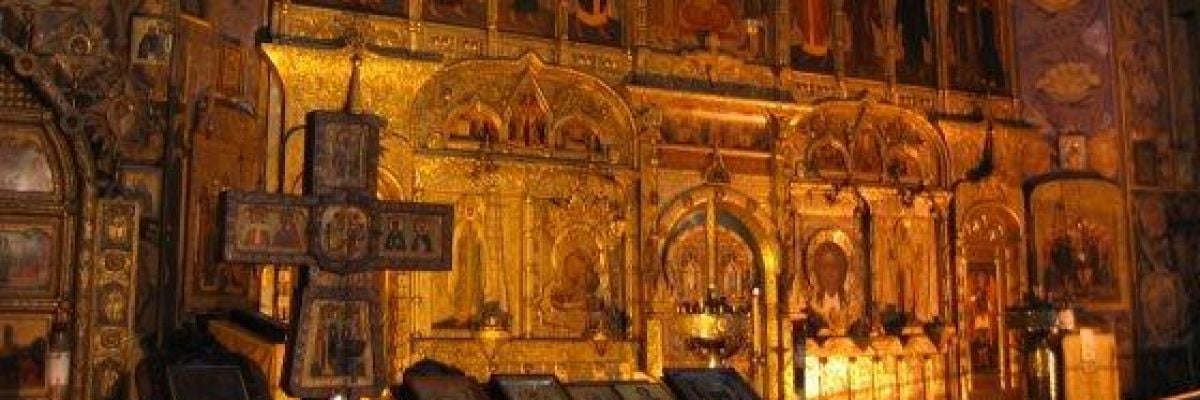
Trent Horn explains the divide between the Roman and Eastern Orthodox Churches, how they are the same, and what they disagree on, such as the Filioque and the Papacy.
Transcript:
Host: Stephen in South Carolina, listening on the Catholic Answers app, you are on with Trent Horn, what is your objection to the faith that you would like Trent to address?
Caller: Oh crap, I’m actually on the air, this is cool. I’m sorry, I’m a big fan. But anyway, I just want to know, Mr. Horn, this isn’t about Christianity in particular but about Catholicism in particular: what are your objections to the more Orthodox traditions like the Greek Orthodox tradition?
Trent: So you’re referring to Eastern Orthodoxy? Because the word “Orthodox” can be used in one of two ways. Typically orthodoxy would mean fidelity to the deposit of faith. So that’s “orthodox” with a lowercase “o.” What we’re talking about here is the Orthodox, capital “O,” those who are the successors of Eastern Churches that broke away from the Catholic Church in the 11th century, that were once united under the few patriarchs but now have split along national lines. Things like the Greek Orthodox, I believe the Russian Orthodox is the largest of the Orthodox churches, and different–Armenian Orthodox, things like that.
One thing I will say, and what the Catholic Church does say, is of all the non-Catholic Christians in the world, the Eastern Orthodox are probably the closest ones, doctrinally, to the Catholic Church. They still have valid orders, it’s possible under certain circumstances for Catholics to receive the Eucharist at Eastern Orthodox liturgies, so they still have, you know, valid orders, valid Eucharist, so they’re very very close.
I would say the biggest objections, or what is what, you know, would be separating Catholics and the Orthodox, one would be a matter of theology–well, they’re all matters of theology; one would be what’s called the “Filioque,” which is an item in the Nicene Creed that was added at a later time that deals with the procession of the Holy Spirit, whether it proceeds from the Father alone or from the Father and the Son. Though even the Catechism says that you can express this truth in different ways, as long as it’s not done rigidly, to accommodate how the Orthodox feel about this, because everything the Son has, if the Holy Spirit proceeds from the Son, everything the Son has ultimately comes from the Father anyways.
That’s still a major point of contention. The larger objection, though, would probably be the issue of the Papacy. I would say that the biggest thing separating Catholics from the Eastern Orthodox would be the question of the Bishop of Rome: what authority does he have? The Eastern Orthodox tend to say that the Bishop of Rome has a primacy of honor, or he is a first among equals, so the Bishop of Rome has a very special place, being the successor of Peter, but he is not the pastor of the entire Church and he has not been endowed with the charism of infallibility, for example.
So I would say that’s the the biggest difference, and dialogue between Eastern Orthodox and Catholics, I think ultimately, is gonna talk a lot about the Papacy in that regard. So is that a helpful answer to your question?
Caller: I just want to make sure I have it 100%. The biggest difference is the Papacy, and of course the Catholic Church teaches that St. Peter was, how would I phrase it…that he was–
Trent: Saint Peter was given the responsibility of being the pastor of the entire Church and was endowed with the charism of infallibility. We see this in scripture when Jesus prays for Peter’s faith, and then tells Peter to strengthen his brothers as well, and this particular office that Peter had of being the leader of the early Church and being given the charism of an infallibility, which is–the Church as a whole shares this, but Peter and his successors share it in a special way–was passed on so that there is, just as in the Old Testament, Israel had a prime minister who served under the king, when Jesus founded his Church He chose one of the Apostles to be his vicar or a prime minister, if you will, to have authority over the others, to ratify ecumenical councils, for example.
So I think the papacy would probably be the biggest difference, though there are others, such as the issue of Filioque and the Trinity and things like that. I would recommend a great book, if you would like to learn more about this issue, would be “Rome and the Eastern Churches,” it’s by a Dominican named Aidan Nichols. Also James Likoudis, I think, has a little book on this called “Ending the Greek Schism” that I’d also recommend. So thank you very much for calling.



